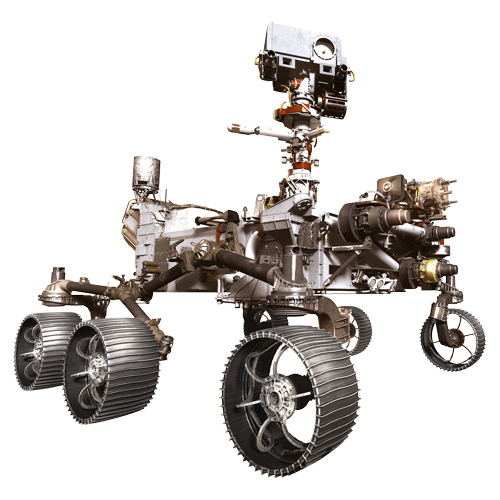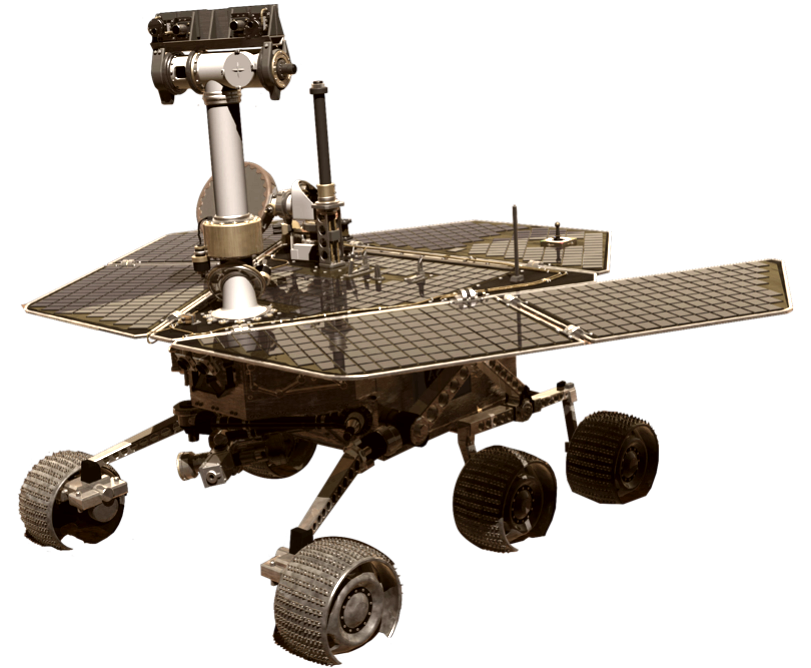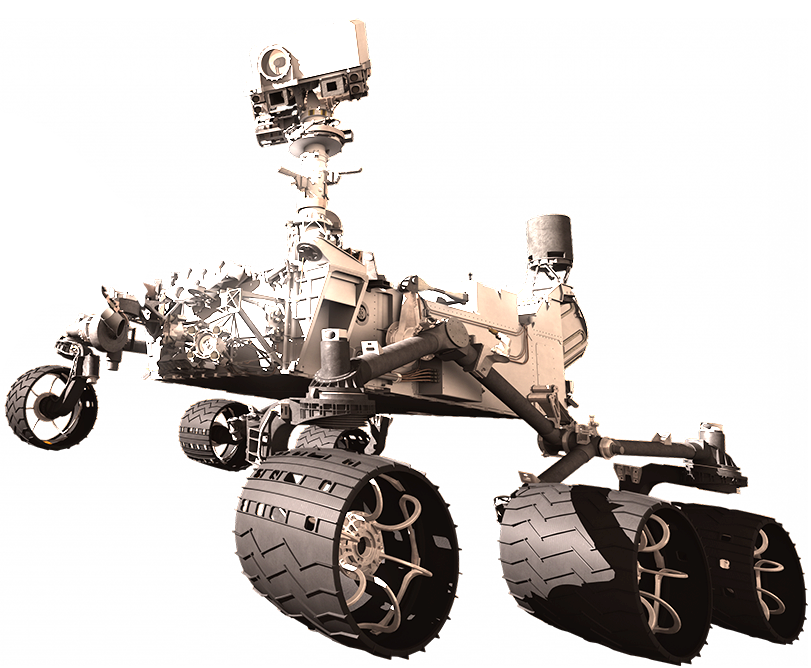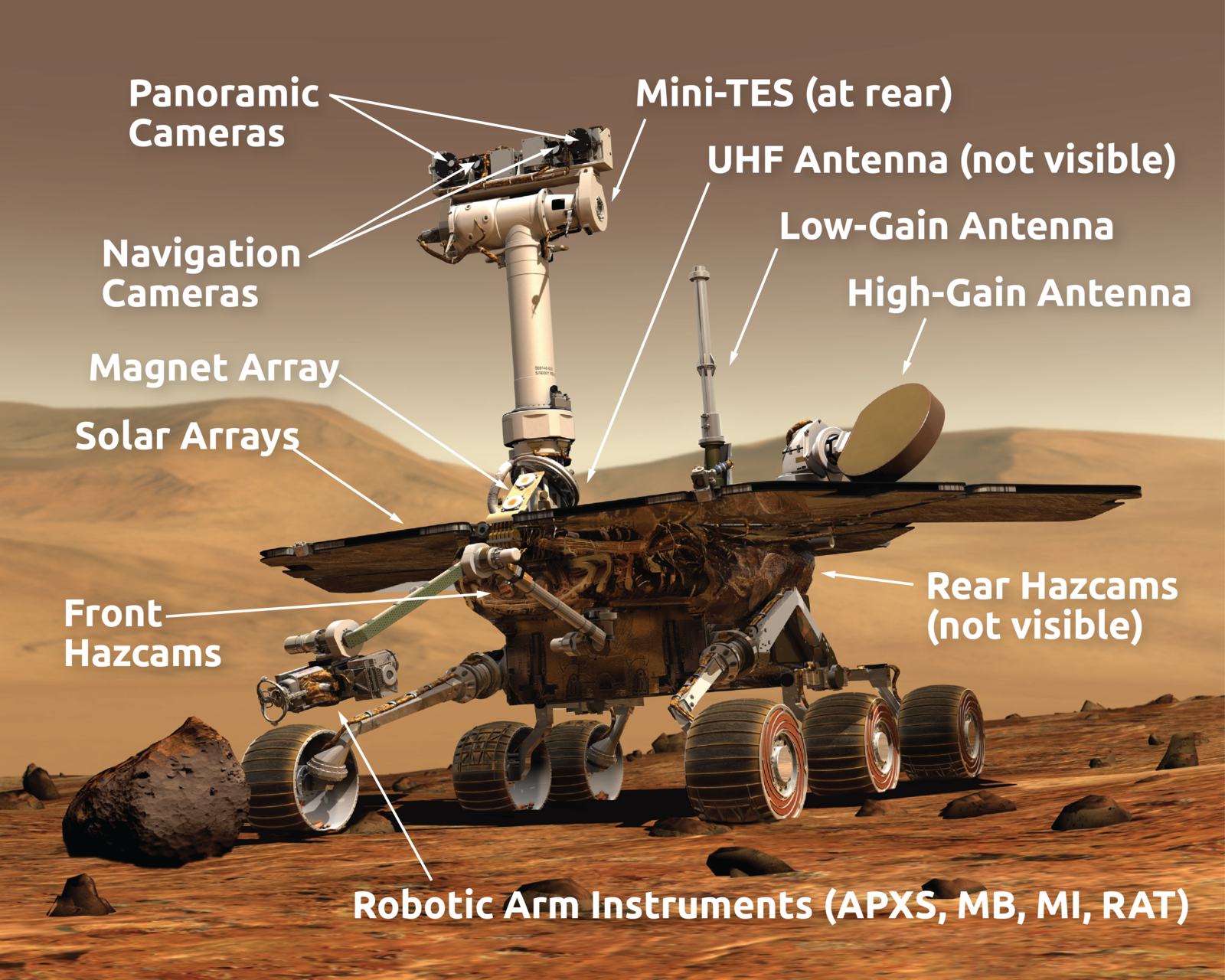


Planetary Rovers
![]() What are Planetary Rovers?
What are Planetary Rovers?
- Wheels and legs for mobility
- Body containing ‘vital organs’ (electronics, computer, hardware). Keeps electronics covered and controls temperature.
- "Senses" to allow the rover to collect information and be similar to what a human would experience. Can include the use of cameras as sight, microphones for sound, etc.
- An arm with 3 joints (resembling the human's shoulder, elbow, and wrist) to maneuver, examine, and use scientific instruments
- Antennas used for communicating with Earth, serving as “speaking and hearing”
- Neck and head which gives the rover a human-scale view
![]() What are the benifits of using this technology?
What are the benifits of using this technology?
![]() What are the disadvantages of using this technology?
What are the disadvantages of using this technology?
Although Planetary Rovers are able to be operated remotely, this does lead to problems regarding lack of access. Rovers are prone to failure though limited mobility, which affects their ability to move and explore the rough terrain of unfamiliar planets.
Since rovers are controlled remotely, communication can also be limited which makes progress slow and often creates periods of no communication and an unclear idea of progress.
Rovers are often alone on a planet, meaning they will not have access to repair or replacement in the situation of being damaged. Especially since unfamiliar planets' terrain can carry dust, wind, rock and other elements that can wear away and damage a rover.
Made with HTML/CSS from scratch by Maddison and Ruby
